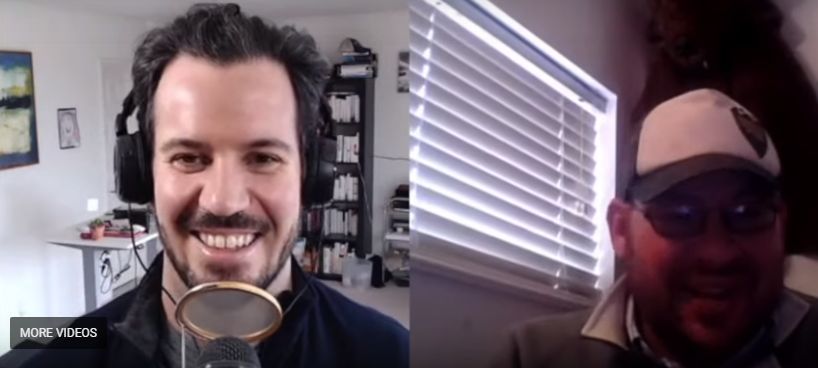https://www.youtube.com/watch?v=uBK3h0n2qPQ?start=2584
During his recent interview with Tobias, Peter Rabover, who is the Portfolio Manager at Artko Capital LP, discusses how micro-cap investing is like quasi private equity investing and how that provides significant ‘early’ investment opportunities. Here’s an excerpt from the interview:
Tobias Carlisle: So, you said before you … Did you start in private equity or you spent some time in private equity? Can you talk a little bit about your time in private equity and how that helps you in your investment.
Peter Rabover: Yeah. Like it’s, I don’t want to oversell my time in private equity. I will say I started out my career as an auditor for US Steel for about two years. And during that time I just got to be part of a lot of deal teams and I got to see what the opportunities are there. And just from the due diligence side which I didn’t particularly enjoy working at US Steel, but I thought that was kind of an interesting experience.
I went to Serbia for six months and got to work on some potential deals there and some due diligence stuff there. And we nationalized the US Steelers or the Serbian Steelers assets as well that we bought out from the government. And I was sharing an office with our general counsel, so I got to hear like a lot of stuff there, and then when I was, I would say not private equity experience, but I was a mid cap in 2000s and pretty much everything in mid cap and the mid 2000s got bought out.
Peter Rabover: I think one year out of our 30 portfolio, we had like eight companies get bought out. It was something like a crazy number. So you got to see all those and obviously just fall on the market. And then in business school, I got to work for a shell firm that’s owned by Goldman and they were consolidating an industry. And I’d rather, that it’s kind of private for public podcast, but I probably got to work on six, seven, $20 to $50 million deals that summer and really, really down to the nitty gritty and just got to see how much value you can extract from a Tuck-in acquisition. And so, it kind of made me much more interested in the micro-cap space in some ways. Like I said, knowing why to potential acquirer could look for is interesting. Then the last four or five years, on the side as a consulting gig, I’ve certainly helped on some transactions as well more, and that’s been interesting.
Tobias Carlisle: That’s one of the attractive things about micro-cap investing, even public micro-cap investing is sort of quasi private equity. It’s like, or quasi VC too that you can get there very early opportunities.
Peter Rabover: And it’s interesting ’cause like I said, I asked my investors for three to five year lockups, there’s a fee schedule and I think for a lot of people that’s unpalatable. They’re like, you’re an equity manager and it how dare you. But I think the smarter people get and then it’s on private equity type of investment and that’s kind of, that’s the opportunity side near it. It sucks because there’s a lot more kind of like unnecessary volatility, but not necessarily volatility in the business results. But you can, a private equity firm will, or a VC firm will go and, they’ll go to their accountants at year end is like, here’s what we think, here’s our DCF, this is what our value is. And the accountants will be like, okay, we’re going to charge you $20,000 more dollars to value level three as a level three asset and there’ll be yes, great, we’ll do it.
Peter Rabover: Then they all sign off on it and everybody’s hands are shaking and the investors get that statement that says their value went up. Great for me, and so I can have that exact same company in my portfolio, like brand the exact same company in my portfolio. And then the last day of the year, somebody decides to trade 100 chairs at the last five minutes on a 10% of bid ask spread. And I get the report at same company being down 10%. So it’s frustrating because they’re kind of misleading results. I can certainly say that the SP500 is probably fairly valued in a market efficiency basis within the five points snapshot. But whereas my stuff certainly much more like longterm, more efficient. And so that’s you know-
Tobias Carlisle: It’s a double edge sword, right?
Peter Rabover: Yeah.
Tobias Carlisle: It creates the opportunity for you to trade in and out, but then you’re also subject to it once you’re in it.
The Acquirers Podcast
You can find out more about Tobias’ podcast here – The Acquirers Podcast. You can also listen to the podcast on your favorite podcast platforms here:
For all the latest news and podcasts, join our free newsletter here.
Don’t forget to check out our FREE Large Cap 1000 – Stock Screener, here at The Acquirer’s Multiple:



